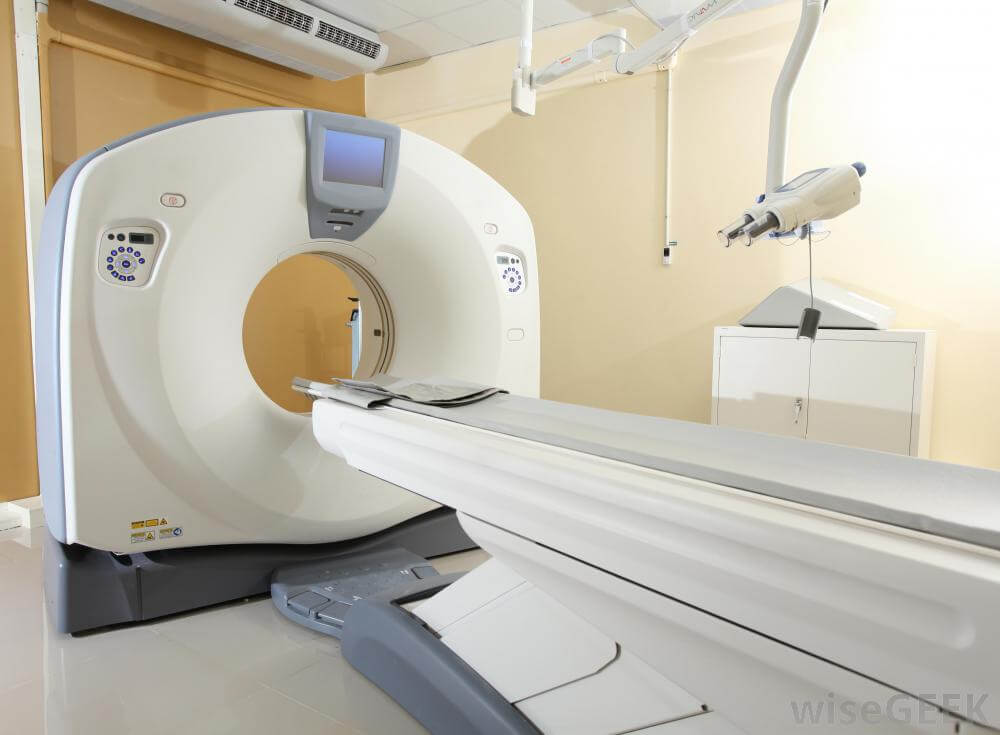Calls for Ukraine
Calls for Europe
Calls for USA

Liver transplantation is an operation in which the doctor removes the part of the recipient’s liver that is no longer functioning. In its place, a part of a healthy liver from a donor is transplanted. A living donor liver transplantation is an alternative to waiting for a liver from a deceased donor to become available. The donor’s liver heals and returns to its normal state shortly after surgery, and the recipient gets a chance to live more than 20 years.
Liver transplantation is necessary only in cases where the patient is at risk of dying within a year without this operation. Also, a transplantation is needed if the liver condition worsens rapidly due to serious pathology, and other methods of treatment do not work.
In what cases is liver transplantation necessary:
The decision on liver transplantation is made by the hepatologist and transplantologist on the basis of a comprehensive diagnosis of the patient’s health. Doctors also take into account the following factors:
At what age is liver transplantation possible?
In foreign clinics, transplantation is performed even for young children. Liver transplantation surgery is possible from the age of 6 months. In this case, the lateral part of the left lobe of the adult’s liver is most often used, because it is best suited for the child in terms of the location of the vessels.
The maximum age at which liver transplantation is possible is determined individually. Patients over 50 years of age need to undergo additional tests to assess the cardiovascular system to avoid the risks of surgery. In the practice of European transplantologists, liver transplantation was performed even in 70-year-old patients.
After a person decides to donate a liver, he must undergo a thorough examination. As a result of the diagnosis, doctors find out if this person can become a suitable donor for the recipient.
According to the recommendations of the American Liver Foundation, potential donation volunteers should take into account possible complications after liver transplantation:
To avoid all possible risks associated with the operation, the donor and recipient should contact a qualified transplantation specialist. Doctors of European and Turkish clinics have the best indicators in matters of liver transplantations for patients of any age. This is due to long-term internships with the world’s leading surgeons and extensive clinical experience on the basis of specialized departments.
Who can donate a part of the liver?
In most countries, including the CIS, the liver donor must be a relative of the recipient. Liver transplantation operations abroad can be performed from any donor compatible with the recipient. In this case, legal issues are most often resolved with the assistance of a transplantation coordinator.
A potential liver donor needs to be a healthy person. The gender of the donor does not matter, and age is the key parameter. Most of the world’s centers for transplantation consider the optimal age range of 18-55 years.
The life of the donor after liver transplantation will not change dramatically, since the organ has the ability to regenerate. The liver will recover on its own and the person will soon return to normal.
Who cannot donate for liver transplantation?
People cannot become liver donors:

For liver transplantation, the blood type of the donor and the recipient must match. Further, doctors conduct examinations and prepare patients for surgery.
Stages of preparation for liver transplantation:
1. First of all, it is necessary to check the general state of health, screening for common somatic and infectious diseases. The presence of pathologies in which transplantation is impossible should be excluded.
A potential donor donates blood for laboratory tests, visits a cardiologist, undergoes gastroscopy and colonoscopy. The candidate is screened for alcohol, drug abuse, smoking and allergies. Donor women need a gynecologist’s consultation and a pregnancy test.
2. The donor undergoes multislice CT with intravenous contrast to assess the liver vessels. This is important for detecting abnormalities of hepatic artery discharge and portal vein bifurcation. Such examination enables the transplantologist to measure the pathological features of the donor during the operation.
In some cases, doctors additionally perform a liver biopsy. Such an analysis may be required if there is a suspicion of steatosis, steatohepatitis, fibrosis of the donor liver.
3. Further, the transplantation coordinator is connected to the preparation process: the documents and mental health of the donor are checked.
First, the surgeon removes the diseased part of the liver along with a fragment of the vena cava. The doctor then blocks off the blood vessels that feed the liver and places shunts to pump blood from the inferior vena cava to the heart.
In place of the removed lobe, a part of the liver is transplanted from the donor. The surgeon connects the blood vessels to provide blood supply to the liver. This procedure requires high precision and professionalism of the transplantologist. At the final stage, the surgeon restores the bile ducts.
According to the European Association for the Study of the Liver (EASL), post-organ transplantation patients should be treated with immunosuppressive therapy. Doctors prescribe special medications to suppress unwanted immune responses in the body.
What are the signs of liver rejection after transplantation
Rejection of the donor liver does not always cause noticeable symptoms. Rejection can be suspected by evaluating blood tests.
Some of the most common symptoms of liver rejection include:
What to do in case of liver rejection?
In case of any manifestations of malaise, the patient must urgently consult a doctor.
Acute liver rejection after transplantation can be observed in 10% of recipients. This most often occurs within the first 3 months after surgery. To prevent rejection, the patient needs to take special medications for the rest of his life and follow the recommendations of doctors.
Transplantation centers of foreign clinics accept patients with the most severe cases. Doctors of foreign hospitals perform standard and specific liver transplantations from related and unrelated donors.
Liver transplantation for a child from a living donor
The difficulty in selecting a donor organ for transplantation to a child has led to the development of alternatives, one of which is the use of 1 and 3 liver segments of a living adult donor.
Partial liver transplantation
Usually, the left lobe of the donor’s liver is used for transplantation. During the operation, the affected part of the recipient’s liver is removed and replaced with a part of the healthy donor organ. The main condition is a sufficient volume of the graft to support the patient’s life after liver transplantation.
Domino principle liver transplantation
Such an operation solves the problem of genetic incompatibility between the donor and the patient in need of a transplantation. Several pairs of donors and recipients are involved in transplantation. During the operation, it is possible to transplant not only the liver, but also other donor organs.

Liver transplantation is one of the most difficult operations in transplantology. A successful operation requires not only modern medical equipment, but also a high qualification of a transplantation surgeon.
Liver transplantation abroad is more developed than in the CIS countries. This is due to the high economic level of countries such as Israel, Turkey, South Korea, Spain. In addition, the possibility of organ transplantation in these countries is not severely restricted in terms of legislation. In a number of foreign clinics, patients undergo liver transplantation not only from relatives, but also from unrelated donors.
In matters of transplantation, the medical centers in Turkey and Israel remain unchanged leaders. This is due to the wide opportunities for foreign patients, who in their country can stay on the waiting list for a donor organ for a long time.
Liver transplantation in Turkey
The best medical centers according to patients’ reviews MedTour:
Liver transplantation in Israel
The leading Israeli departments of transplantation are located on the basis of the following clinics:
Liver transplantation in South Korea
One of the world’s foremost medical centers is Severance hospital in Seoul. The transplantation department of the Severance clinic has been open since 1979. The first liver transplantation was carried out here in 1996.
Severance doctors perform more than 50 liver transplantations every year. The clinic accepts patients from all over the world and serves in accordance with modern European and American quality standards.
Liver transplantation in India
Global hospital in Chennai is the most popular medical complex in India, on the basis of which the organ transplantation department functions. Before the coronavirus epidemic, the clinic was the world leader in the number of liver transplantations. According to Global hospital, the success rate of liver transplantation here is 95%. This is a very high figure that can be compared with the results of transplantations in the best hospitals in Germany and the USA.
The cost of liver transplantation is influenced by the type of transplantation (from a related / unrelated donor) and the pricing policy of the chosen clinic.
The cost of liver transplantation surgery in a foreign hospital can be more expensive than in hospitals in the CIS countries. But it is worth remembering the broader opportunities in transplantation and the results of patient survival after operations abroad.
Examples of the cost of different options for liver transplantation in clinics around the world:
For what diseases can liver transplantation be indicated?
Patients can be recommended:
How long do you live after a liver transplantation?
If the operation is performed by an experienced foreign transplantation surgeon, then a patient with a transplanted liver will be able to live for more than 20 years.
In most clinics in the CIS, survival rates after liver transplantation are less reassuring – about 5 years.
What is the cost of liver transplantation in Russia?
The cost of liver transplantation in Russia is about 3 million rubles.
Taking into account the peculiarities of the legislation, the donor can be a blood relative of the recipient or a spouse. This significantly limits the ability of patients to receive part of the organ in time from a donor that is compatible in all respects.
How much does a liver transplantation cost in Kazakhstan?
Liver transplantation in Kazakhstan, like in a number of other CIS countries, has its own difficulties in terms of donor selection and hidden payment systems for medical services.
Patients from Kazakhstan, Uzbekistan, Russia prefer transparent payment programs for liver transplantations. You can find out the cost of liver transplantation in one of the best clinics in the world from the medical coordinator of MedTour.
How to sign up for a liver transplantation?
If a patient is eligible for a liver transplantation, they receive a referral from their doctor. So a person can become a waiting list for a donor organ.
Please rate the work of MedTour
